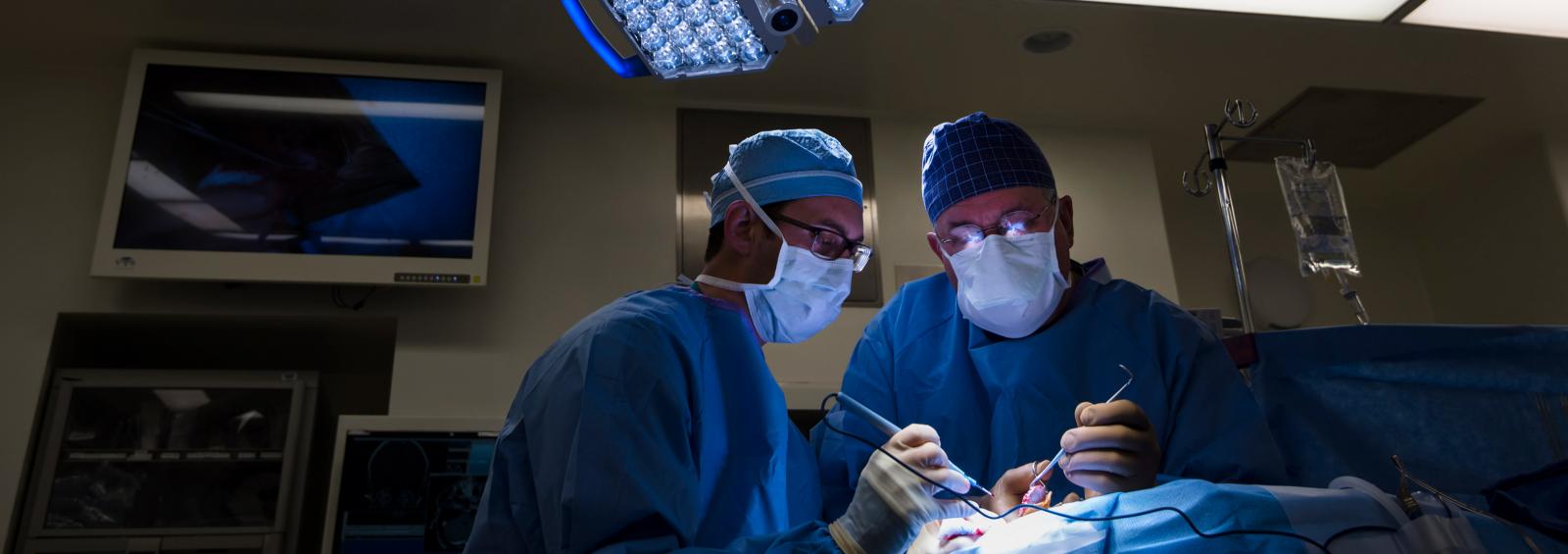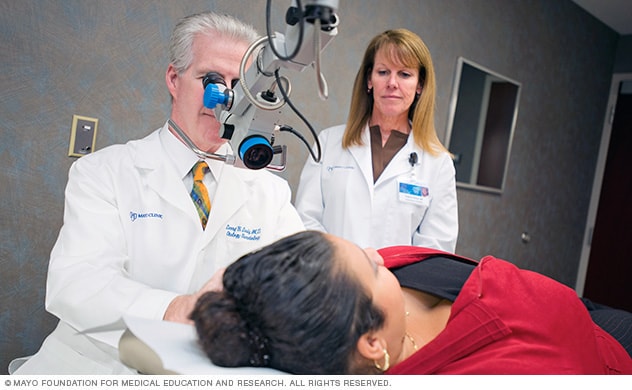What Makes ENT Surgery the Right Option for Sleep Disorders?
Wiki Article
Exploring the Area of Otolaryngology: What to Anticipate When You Consult an ENT
Otolaryngology, generally referred to as ENT, incorporates the diagnosis and treatment of nose, ear, and throat disorders. For those experiencing related concerns, getting in touch with an ENT professional can give quality and alleviation. Recognizing what to expect throughout such appointments is crucial for reliable interaction and care. This overview will lay out key facets of the ENT experience, including typical factors for gos to and the processes involved in medical diagnosis and therapy.
Recognizing Otolaryngology: An Overview
Otolaryngology, commonly referred to as ENT (Ear, Nose, and Throat) medication, is a specialized branch of medication that concentrates on the medical diagnosis and therapy of problems affecting these vital areas of the body. This area includes a wide variety of disorders, including those relevant to hearing, balance, respiratory system function, and speech. Otolaryngologists are educated to manage both medical and surgical treatments, utilizing advanced techniques and technologies. Their proficiency extends beyond typical disorders, attending to problems such as allergic reactions, sinus infections, and hearing loss. In addition, they play a vital duty in the monitoring of head and neck cancers, offering thorough treatment customized to individual patient demands. Overall, otolaryngology continues to be necessary for maintaining health and wellness and lifestyle in affected people.Usual Factors to See an ENT Specialist
Several people seek the competence of an ENT expert for a variety of factors, reflecting the varied nature of problems that influence the ear, nose, and throat. Typical issues include persistent sinus problems, which commonly results in consistent nasal blockage and facial pain. Allergies and their linked symptoms, such as itching and sneezing, also trigger visits to these professionals (ENT Doctor). Hearing loss, whether unexpected or gradual, is another considerable reason for examination. Furthermore, individuals might seek evaluation for throat problems, including relentless hoarseness or ingesting difficulties. Sleep apnea, characterized by disturbed breathing during rest, is frequently addressed by ENT professionals. Each of these conditions highlights the relevance of specialized care in managing complicated ENT-related health issues
Preparing for Your ENT Consultation
When preparing for an ENT appointment, it is necessary to collect relevant information and think about any type of details problems. Patients should assemble a thorough medical history, including previous ear, nose, or throat problems, surgical treatments, and current medicines. Recording signs and symptoms-- such as regularity, period, and seriousness-- can offer important insights for the ENT specialist. Furthermore, individuals need to prepare a listing of inquiries they wish to ask, guaranteeing that all concerns are resolved during the visit. Bringing along any type of relevant medical documents or test results can additionally help the ENT in recognizing the individual's condition. Ultimately, patients must validate their consultation information, consisting of time, area, and date, to reduce any final confusion. Proper prep work can improve the efficiency of the assessment and cause far better results.What to Anticipate Throughout the Examination
As the consultation starts, the client can expect to take part in an extensive discussion with the ENT specialist concerning their signs and clinical background. The expert will certainly make inquiries concerning the duration, frequency, and intensity of signs and symptoms such as hearing loss, nasal blockage, or aching throat. In addition, the person's previous medical problems, medicines, and any kind of relevant family members background will be examined, aiding the professional in forming a full understanding of the person's wellness. The ENT may additionally inquire about way of life variables, such as exposure to irritants or irritants. This open dialogue establishes a foundation for the assessment, ensuring that the individual's issues are addressed and setting the stage for any needed analyses or suggestions for treatment.
Analysis Examinations and Procedures in Otolaryngology
A variety of diagnostic examinations and treatments are crucial in otolaryngology to properly review and identify conditions affecting the throat, ear, and nose. Usual examinations consist of audiometry, which determines hearing feature, and tympanometry, evaluating middle ear pressure. Nasal endoscopy allows visualization of the nasal passages and sinuses, while laryngoscopy examines the throat and singing cables. Imaging methods, such as CT scans and MRIs, provide comprehensive sights of head and neck structures. Allergy screening may likewise be conducted to recognize triggers for sinus or respiratory issues. These diagnostic tools make it possible for ENT experts to establish a complete understanding of people' conditions, making certain customized and effective monitoring strategies. Proper medical diagnosis is important for successful therapy outcomes in otolaryngology.Therapy Alternatives Offered by ENT Specialists
ENT experts provide a selection of therapy alternatives customized to deal with details problems influencing the ear, nose, and throat. These treatments range from traditional techniques, such as medicine and way of living alterations, to more intrusive treatments. Allergies may be handled with antihistamines or immunotherapy, while chronic sinusitis could call for nasal corticosteroids or sinus surgical procedure. For hearing loss, ENT experts frequently suggest hearing aids or medical treatments like cochlear implants. In instances of throat disorders, options can include speech treatment or operations to remove blockages. Additionally, they might supply support for taking care of rest apnea, consisting of making use of CPAP tools or surgical interventions. In general, the goal is to improve people' high quality of life via personalized treatment and efficient therapy approaches.When to Seek Follow-Up Treatment With an ENT
Recognizing when to look for follow-up treatment with an ENT expert is essential for handling continuous signs hunting hearing protection and symptoms or issues connected to nose, throat, and ear problems. Patients must think about scheduling a follow-up consultation if signs and symptoms continue regardless of initial treatment, such as chronic ear pain, nasal congestion, or throat discomfort. Adjustments in hearing, balance problems, or uncommon nasal discharge might also warrant further evaluation. Additionally, if a client experiences adverse effects from prescribed drugs or has gone through an operation, follow-up treatment is very important to check healing and resolve any worries. Prompt examinations can guarantee effective management of problems, protect against prospective complications, and provide assurance concerning one's health. Seeking follow-up care advertises aggressive wellness monitoring in otolaryngology.Often Asked Concerns

What Qualifications Should I Look for in an ENT Specialist?
When looking for an ENT expert, one ought to look for board qualification, relevant experience, and strong client reviews. In addition, reliable interaction abilities and visit this site right here a thoughtful technique can greatly improve the overall therapy experience.Just how Do I Pick the Right ENT for My Needs?
Selecting the ideal ENT specialist includes examining their certifications, experience, and patient testimonials (ENT surgery). It is vital to consider their communication design and method to treatment, guaranteeing they align with the person's specific wellness requirements and preferencesAre There Any Kind Of Threats Connected With ENT Procedures?
The risks connected with ENT treatments might consist of infection, bleeding, anesthesia complications, and possible damages to surrounding frameworks. People should review these threats with their doctor to understand private issues and assurance notified decisions.Just How Can I Take Care Of Anxiety Prior To My ENT Visit?
To manage stress and anxiety before a visit, people can practice deep breathing exercises, imagine positive outcomes, prepare inquiries ahead of time, and look for assistance from friends or family, fostering a feeling of reassurance and peace.What Should I Do if I Experience Adverse Effects From Therapy?
If negative effects from therapy occur, the person should immediately report them to their medical care copyright. Modifications to over the counter hearing aids treatment or extra treatments might be essential to assure security and efficiency in managing their condition - Hearing. As the examination starts, the patient can expect to engage in a complete conversation with the ENT specialist concerning their signs and medical history. These analysis tools allow ENT specialists to develop a complete understanding of individuals' conditions, guaranteeing tailored and effective management strategies. ENT specialists use a variety of treatment alternatives tailored to resolve certain conditions influencing the throat, nose, and ear. When looking for an ENT professional, one need to look for board accreditation, relevant experience, and solid patient evaluations. Choosing the right ENT expert includes assessing their qualifications, experience, and client testimonialsReport this wiki page